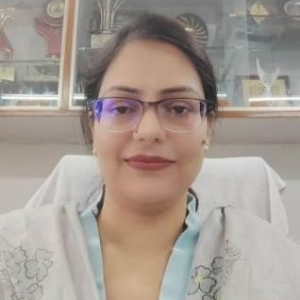Title: Aluminium mediated expression of dehydration stress protein and ability of Al-acclimatized immobilized Nostoc muscorum: A strategy to combat abiotic stress and its potential as a biofertilizer
Abstract:
In the present study engineered cyanobacteria based biofertilizer using the concept of acclimatization and immobilization has been for the very first time introduced and attempted. The cyanobacterium Nostoc muscorum (N. muscorum) was well acclimatized to Al metal by initially subjecting the cells to very low dose (0.1 µM) of Al and subsequent transfer every 15 days to the higher concentrations (1, 10, 20, 30, 40 and 60 µM) of Al with regular growth study at each step of cells transfer to the higher concentration and immobilized in calcium alginate beads and were examined for their growth in terms of content of chlorophyll a, heterocyst frequency and ammonia excretion. Growth was more pronounced in Al- acclimatized immobilized state than under free state. Heterocyst frequency and ammonia excretion were considerably higher under immobilized state than under free-living conditions. Results also showed the ameliorative role of Al- acclimatization in N. muscorum exposed to UV stress. Air dried Al- acclimatized immobilized cells stored under light, temperature, air and dust retained the ability to regenerate the viable colonies for upto months. From the experiments performed, it is witnessed that calcium alginate does not cause any opposing effect on regeneration potential and N2 – fixing capability of N. muscorum and the air- dried beads are appropriate to store and easy to transport. We also hypothesize that Al may induce dehydrin-like proteins in N. muscorum providing defense against the deleterious oxidative damage caused by other toxic metals. In the present study, protein extracted from Al (1-80 µM) treated N. muscorum was analyzed by the SDS-PAGE, which showed dose-dependent significant upregulation of various proteins resembling the dehydrin-like proteins noticed in higher plants under drought or dehydration stress upto 40 µM. The RT-PCR results indicated a significant increase in DHN mRNA transcript levels in Al-treated cells (40 µM) when compared to the control cells. The higher expression level of mRNA transcript was found 0.6-fold higher than the control, respectively. Further, this result prompted us to investigate the precise mechanism(s) of defense in the Al-acclimatized N. muscorum. The cells of N. muscorum acclimatized with Al (40 µM) when exposed to Cd (8µM) showed a reduction of about 75% in the MDA level compared to the cells exposed to Cd alone. Further, proline, known to be induced during stress, was also increased by ~25% in the Al-acclimatized Cd exposed N. muscorum as compared to the cells exposed to Cd alone. Our results perhaps for the first time demonstrated that dehydrin-like proteins induced by Al stress could provide tolerance to N. muscorum from deleterious effects of other toxic metals. Thus the present study will provide stress tolerant biofertilizer with improved storage capability and portability enabling more sustainable and efficient production for sustainable agriculture.
Key words: aluminium, dehydrin, acclimation, tolerance



